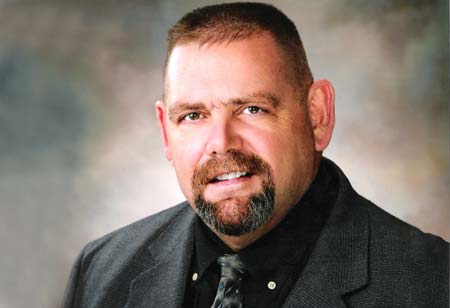THANK YOU FOR SUBSCRIBING

Enhancing Third Party Due Diligence in Construction Firms: A Key to Supplier Risk Management or Waste of Money?
By Ingrid Matos, Chief Compliance Officer/DPO, QGMI and Obu Narteh Amoah CA, MCIT, MSc, BCom Head, Compliance & Risk, Contracta Construction UK Limited

 By Ingrid Matos, Chief Compliance Officer/DPO, QGMI and Obu Narteh Amoah CA, MCIT, MSc, BCom Head, Compliance & Risk, Contracta Construction UK Limited
By Ingrid Matos, Chief Compliance Officer/DPO, QGMI and Obu Narteh Amoah CA, MCIT, MSc, BCom Head, Compliance & Risk, Contracta Construction UK LimitedAre you a Construction company struggling with the term Due Diligence and its implementation for the last few years? Has the phrase “very complex, bureaucratic and nothing effective” become synonymous with the concept of Third-party Due Diligence? If “yes” is the answer, then this article seeks to provide you with a solution to the problem.
The construction industry across the world is seen as one of the most susceptible areas to the risk of bribery and corruption, having suffered a deep negative reputational impact in the past year as a consequence of many worldwide investigations and scandals.
On the other hand, the sector is one of the most responsive to innovation, technologies, and implementing new requirements faster, including compliance.
One of the biggest reasons why the sector really invests in compliance is because it knows the risk involved, for construction firms are highly dependent on their suppliers. This interdependence provides a great opportunity to embed compliance into the supply chain and mitigate risks.
"The construction industry across the world is seen as one of the most susceptible areas to the risk of bribery and corruption, having suffered a deep negative reputational impact in the past year as a consequence of many worldwide investigations and scandals."
The supply chain is a key element for Construction firms. Big projects require designers, materials, equipment, environmental consultants, and other services and goods provided by third parties, either big, medium, or small businesses that work together with the contractor.
Suppliers are great partners, but they also represent great risk.Due diligence is an important element in mitigating risks and supporting business continuity.
But on the other hand, due diligence causes some fear in the areas of procurement and engineering. Why?
Probably because, at first sight, it’s assumed that DD is only a trend, is expensive and bureaucratic. It is also thought that due diligence causes delays and finally generates bitterness in relationships with Third Parties.
According to the Association of Certified Fraud Examiners (ACFE) in the Occupational Fraud Report 2022, they estimate that organizations lose 5% of their revenues annually due to internal fraud, most of which originate from Third-party relationships. Also, according to the FCPA statistics, nearly 90% of international corruption cases involve the actions of third-party intermediaries.
What is Supplier Due Diligence and its value?
In Africa, marriage unions are normally between families, not people involved. Both the bride and groom’s families will take their time to investigate and ask questions about the background of the potential partners of their wards.
These inquiries done by prospecting Bride and Groom’s family are due diligence being done to ensure the family fully knows and understands the potential partner. Any red flag identified is evaluated carefully to allow the family to decide whether the marriage should be granted or not.
Supplier Due Diligence is akin to a marriage between two families, but here, one will be a purchaser and the other a supplier of goods and/or services.
It can be defined more formally as the risk assessment of a potential strategic partner(supplier) to ensure the best-fit supplier with the right ethical integrity and technical and financial capabilities to deliver a project, service, or goods. Sometimes, it is referred to as Know Your Business Partner (KYBP).
Effectiveness of Due Dilligence Tools in Developing Countries
Most of the Compliance regulations in force are more than five years old. Since their action, a lot of changes have been introduced in the topic of Third-Party Risk Management (including heightened sanctions on Russia and the introduction of the German Due Diligence Act). Five years ago, a red flag generated by a system could result in a rejection of the third party without a deeper analysis. Nowadays, the tools, systems, and resources available allow the operators to go further to find the real risks related to the partners.
Therefore, if you really want to establish effective and proper Due Diligence, you need to go deep, and the following key areas must be taken into consideration:
Cultural Aspects: The cultural nuances of geographical areas and specific industries are a key thing to focus on but are normally disregarded. Don´t ignore them; try to deeply understand them to shape your DD properly.
Data Availability/Transparency: Most of the Due Diligence systems work very well in developed economies but need to consider some places like China, the Middle East, Asia, and Africa, which are grey regions in terms of transparency.
Mix different tools to be more effective: One of the key features of the construction sector is its presence in remote zones where Wi-Fi and technology are sometimes not available. So, in these areas, it is important to count on local staff to conduct the due diligence. Otherwise, the information gathered by the system could be defective and generate a wrong decision.
Understand your environment (Culture, again!): It's not because you don't understand the place you operate in that 100% of the third parties are high risk. A Compliance operator must understand the features, weaknesses, and people in each environment.
Evolving Regulations
In the Construction sector, the competition is high. So, if you develop strong third-party management, you can gain two benefits: reduce risk and enhance your project's attractiveness to banks, which translates to more profits.
Do you need an extra push to invest in that? So, not only the classic regulations such as FCPA (1977), UK Bribery Act (2010), and SAPIN II (2017) have mandatory Third-Party screenings as the updated guidance issued by the DOJ (Evaluation of Corporate Compliance Programs 2023) listed Third Party Management as a key element to measure the compliance effectiveness.
More recently, Germany launched a German Supply Chain Due Diligence Act (2022), and, finally, the European Commission is proposing a Corporate Sustainability Due Diligence Directive that has been under study since 2022 and will probably be launched next year.
These sets of regulations send a clear message to companies: Due diligence is not a cost but rather an investment, so deploy your system; otherwise, your competitiveness will be reduced.
Read Also
Where Safety Really Lives: Between the Plan and the Jobsite
Accelerating the Shift Toward Data-Led Construction Excellence
Building Projects Through People, Planning and Culture
Innovating the Future of Construction: Insights From Power Design's Leadership
Advancing Construction with Technology and Care
Technology as a Strategic Advantage in Preconstruction

 Copyright © 2026 All Rights Reserved | by:
Copyright © 2026 All Rights Reserved | by: Construction Tech Review
| Subscribe | About us | Sitemap| Editorial Policy| Feedback Policy














